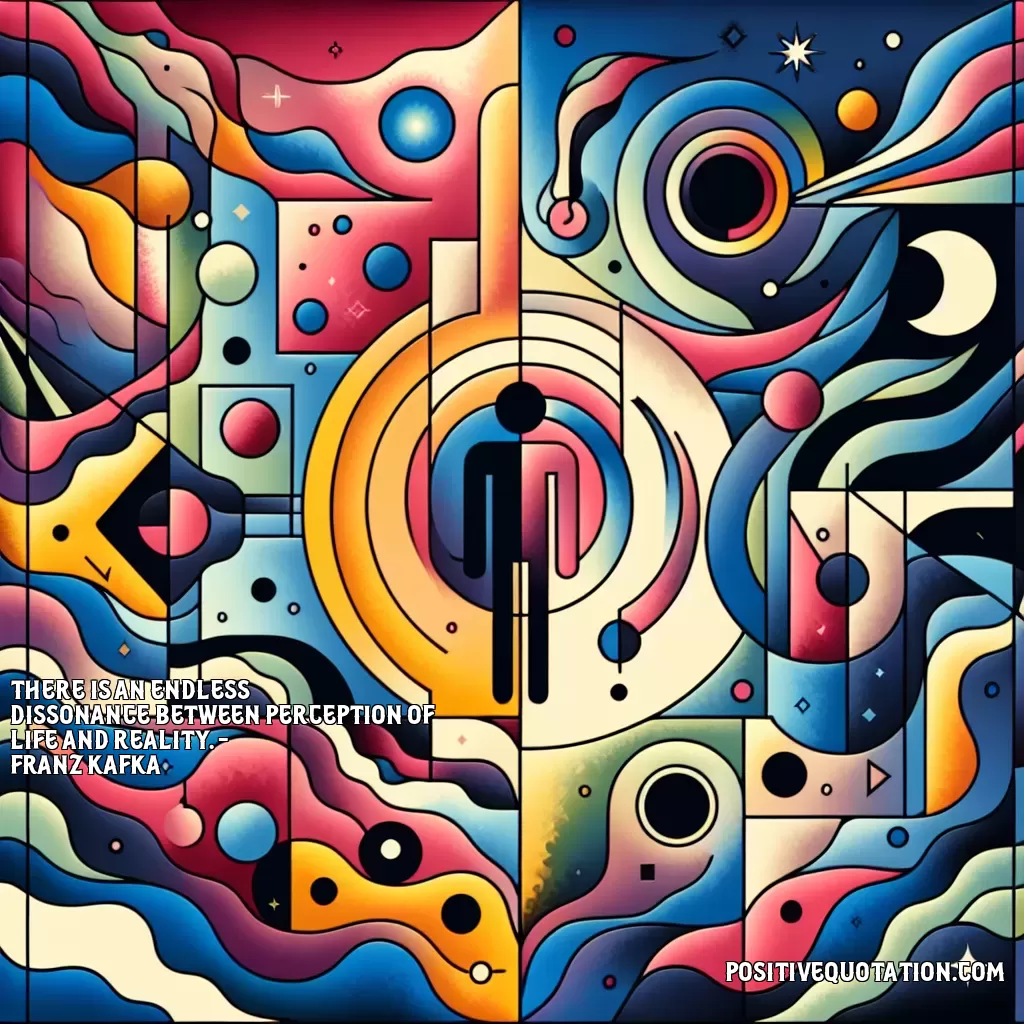
There is an endless dissonance between perception of life and reality. - Franz Kafka
Author: Franz Kafka
👁️ 8 views

There is an endless dissonance between perception of life and reality. - Franz Kafka
👁️ 8 views
Franz Kafka's quote, "There is an endless dissonance between perception of life and reality," delves deeply into the complexities of human experience and understanding. The term "dissonance" refers to a lack of harmony or agreement, which suggests a disconnect or conflict. In this context, Kafka is highlighting the perpetual discrepancy between how individuals perceive life and the actual state of reality. Perception is inherently subjective and influenced by various factors, including personal experiences, emotions, cultural backgrounds, and cognitive biases. Each person views the world through their unique lens, which can distort the true nature of reality. Meanwhile, reality, as the objective state of things, remains independent of individual interpretations. Kafka's observation points to the idea that our perceptions are often clouded by desires, fears, expectations, and societal norms, leading us to construct a version of reality that may not align with the truth. This dissonance can cause misunderstandings, misinterpretations, and even existential dilemmas as individuals struggle to reconcile their internal world with the external one. For Kafka, whose literary work frequently explores themes of absurdity, alienation, and the struggle for meaning in an indifferent universe, this notion of dissonance underscores a fundamental human condition. It challenges us to question the accuracy of our perceptions and to seek a deeper awareness of the complexities that define reality. Furthermore, it prompts introspection into how much of what we accept as reality is merely a reflection of our subjective experiences and assumptions. Ultimately, this dissonance invites an exploration of the balance between perception and reality, urging us to look beyond the surface to engage with the world more authentically.
Quote By: Franz Kafka
Franz Kafka (1883-1924) was a German-speaking Bohemian writer, renowned for his surreal and existential works that explore themes of alienation, bureaucracy, and the absurdity of life. His most famous stories, including "The Metamorphosis" and "The Trial," illustrate the struggles of individuals against incomprehensible and oppressive forces. Despite publishing only a few short stories and novels during his lifetime, Kafka's influence on 20th-century literature is profound, earning him a lasting legacy as one of the key figures of modernist literature.
Bio added on: 2025-02-24 05:27:25